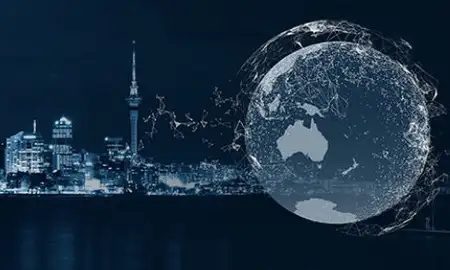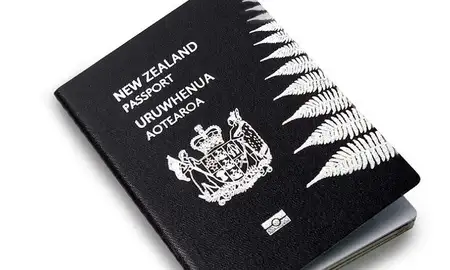
The Prime Minister has announced there will be no public inquiry into foreign interference in New Zealand.
Calls for an inquiry have been prompted by the alleged activities of agents or proxies of the People’s Republic of China (PRC). The targets of such activities have been Chinese people, many of whom have opted to leave China or Hong Kong to escape the autocratic and oppressive PRC regime. Their complaints appear genuine. Intimidation is being felt.
China’s money has likely found its way into the coffers of New Zealand political parties, and pro PRC candidates may have entered our local body and national political system. Cyber hacks and cyber infiltration, by perpetrators either directed (or at least unrestrained) by the Chinese government have also occurred here.
These have all been stringently denied by China. Such activities have always been run under a cover of ‘plausible deniability,’ the euphemism for a lie - “We are not involved,” when they know damned well they are.
China makes no secret that it considers Taiwan, the South China Sea, and Chinese people generally, as rightfully under its domain. Since 2014, China has had legislation (albeit revised since) which more or less requires its commercial entities, and its people, wherever they are, to aid its ‘intelligence’ efforts. It would appear such efforts extend to the activities which have attracted media attention recently.
But do we need a Commission of Inquiry into the matter? Such an inquiry would likely achieve nothing beyond extending the suspicions we already have – for which we can obtain little by way of concrete proof as it is.
Moreover, while the Chinese government appears to be the most recent perpetrator – they are not the only government up to such tricks.
The reality is that any country with the capability to exert power beyond their own borders will likely be doing so using their intelligence services, or a range of private entities akin to them, in efforts to influence the internal affairs of other states. This is the real world, not the bubble New Zealanders think they live in.
Our traditional friends and allies have historically engaged in propaganda campaigns infusing money or misinformation into financial or media systems in attempts to influence the political direction of other countries. The post World War II ‘West’ did not just fall into its liberal democratic state, it was arguably bought and furnished by American money. It was of course a far more subtle interference than the USSR’s brutality in the Eastern Bloc.
New Zealand’s split with ANZUS in February 1985 and subsequent anti-nuclear legislation was seen by the USSR as a fissure in the Western alliance; KGB operations immediately stepped up here. In July that year, a French intelligence operative infiltrated Greenpeace, and a French special forces team bombed the Rainbow Warrior in Auckland Harbour. Palestinian groups, and the Israeli secret service, have both have been detected here stealing New Zealand passports, or the identities of New Zealanders for the purposes of obtaining them to use in more sinister activities.
We are not enemies of any of these people – but their agents were here, nonetheless.
Others are likely still here for the purposes of espionage, or through proxies with bags of money are buying political favour, investing in commercial entities, dropping hints to media outlets to follow one story rather than another, or seeding social media chaff for the emoji generation to tag its likes and dislikes onto.
It is not a commission of inquiry that New Zealanders need, it is the capacity to critically think about how foreign influence works in a country economically dependent on overseas markets, technologically dependent on foreign suppliers, forced to hedge between nations we share a political system with, and those we need for economic survival. This is the environment in which emerges an influence-to-interference spectrum defying any straightforward attempt to distinguish the sinister from the well-intentioned.
The vast bulk of foreign influence here is simply flashed in front of us, and we not only take it, we pay big bucks for the privilege.
Technology is not neutral. Nor is mainstream or social media, or television, benign; while we use these things, they are collecting our habits, our interests, our likes and fetishes, or through subliminal content, designing them.
That foreign governments set out to do the same should come as no surprise. Stealing our secrets, hacking our systems and intimidating people – are illegal, and we need a solid ability to confront the perpetrators. But nudging us this way or that, by persuasion, offering solutions, gifts and financial support, all comprise a spectrum of greys where one shade differs very little from another.
Not an inquiry then, but a serious counter-intelligence capability and a population who can think for itself, is our best defence against unwanted foreign interference.
Dr John Battersby is a Senior Fellow in the Centre for Defence and Security Studies at Massey University and a specialist on intelligence and counter-terrorism.
Related news
Opinion: Understanding counter-terrorism needs serious scholarship
By Dr John Battersby

Opinion: Countering terrorism – and ‘doing the right thing’
The apprehension of New Zealand ISIS affiliate Suhayra Aden by Turkish authorities, and our reaction to it, provides an interesting insight into New Zealanders' understanding of terrorism and how to counter it, says Dr John Battersby.

Opinion: Confronting extremism – what’s changed since March 15?
As 15 March draws near, John Battersby asks - has anything changed in New Zealand since last March, and have we learned anything from the experience?
